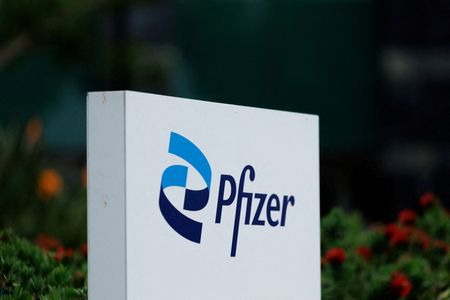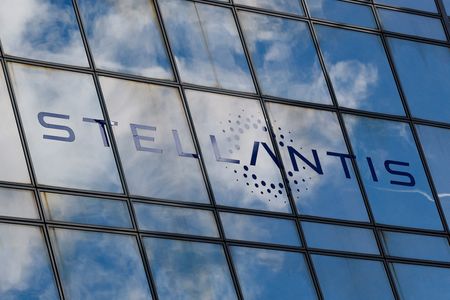By Sabrina Valle, Mrinalika Roy and Tom Hals
(Reuters) -Pfizer filed a second lawsuit on Monday accusing Danish drugmaker Novo Nordisk of structuring its $9 billion bid for biotech Metsera to stall, not close, the deal, a tactic it said is designed to suppress competition in obesity drugs.
Novo and Metsera on Monday rejected Pfizer’s claims, in a dramatic escalation in the legal and bidding fight for control of the biotech startup, which is developing next-generation obesity drugs. A judge will analyze the complaints on Tuesday.
Pfizer agreed to pay up to $7.3 billion for Metsera in September, after a private bidding war with Novo for the biotech firm that lasted months. Metsera said Novo already had a big chunk of the market, could face antitrust scrutiny, and rejected Novo’s offer six times.
But last week, after Novo’s top investor overhauled the board, the Danish company launched an unsolicited rival bid – its seventh since January.
In a surprising move, Metsera said Novo’s offer was superior and gave Pfizer until Tuesday to submit a higher bid.
That prompted Pfizer to sue Metsera’s board and Novo in Delaware’s Court of Chancery on Friday and then it hit Novo with an antitrust lawsuit in Delaware federal court on Monday.
The state court case was assigned to Vice Chancellor Morgan Zurn, who scheduled a hearing for Tuesday morning.
Metsera accused Pfizer of gaming the schedule by not suing sooner, when it knew of Novo’s bid on October 25, and of trying to drive down its takeover price. The company in a statement described Pfizer’s allegations as “nonsense,” adding that it will respond to the claims in court.
Novo on Monday said it closely adhered to all of the restrictions under the Pfizer merger agreement.
“We are confident that the facts and the law are on our side,” Novo said in a statement. “Pfizer’s suggestion that Novo Nordisk would impair or potentially stop an emerging US competitor is absurd and not based on facts, common sense, or market realities.”
Metsera is developing a new obesity drug that would have the benefit of monthly injections versus weekly injections required for wildly popular Wegovy from Novo and Eli Lilly’s Zepbound and Mounjaro.
Pfizer is betting on Metsera to help it enter an obesity market some analysts forecast could soon reach $150 billion annually.
Metsera is working on experimental therapies analysts say could generate $5 billion in sales.
PFIZER SAYS NOVO AIMS TO DELAY COMPETITION
Pfizer’s second complaint, filed in U.S. District Court in Delaware on Monday, alleges Novo Nordisk is using a 30-month “outside date” — the period before either party can terminate the merger — to delay Metsera’s entry into the market for obesity drugs that target the GLP-1 protein, currently dominated by Novo and Lilly.
Pfizer said its own deal with Metsera had a nine-month timeline and received early termination of antitrust review on October 31.
Pfizer claims Novo Nordisk’s bid is not a genuine acquisition attempt but a strategic maneuver to block Metsera from advancing its drugs in development and preserve Wegovy and Ozempic’s market share.
In the suit, Novo is accused of offering Metsera shareholders $6.5 billion upfront — before regulatory review — and tying the company to restrictive covenants that delay or prevent clinical progress.
“Something is clearly rotten in the state of Denmark,” Pfizer wrote in its complaint — a pointed reference to Shakespeare’s Hamlet that underscores the company’s view of Novo’s motives following a recent board purge by its controlling shareholder.
Metsera shares fell 3.7% on Monday to close at $60.73. Pfizer shares ended flat, while Novo shares fell less than 1%.
(Reporting by Sabrina Valle in New York, Mrinalika Roy in Bengaluru, Tom Hals in Wilmington, Delaware, Maggie Fick in London and Jacob Gronholt-Pedersen in Copenhagen; Editing by Caroline Humer, Bill Berkrot and Matthew Lewis)











